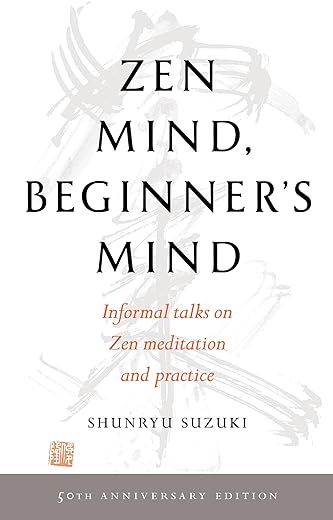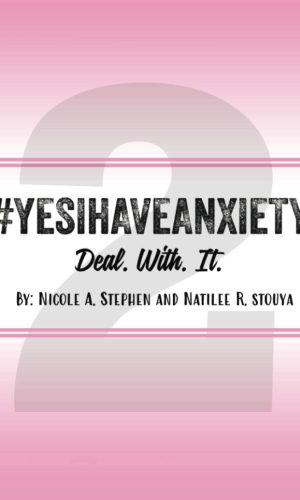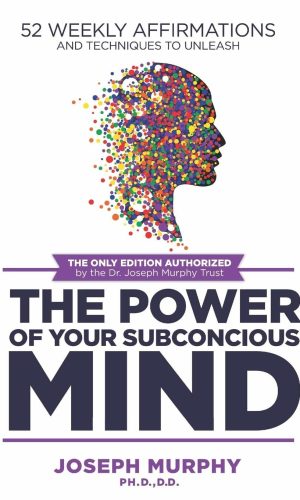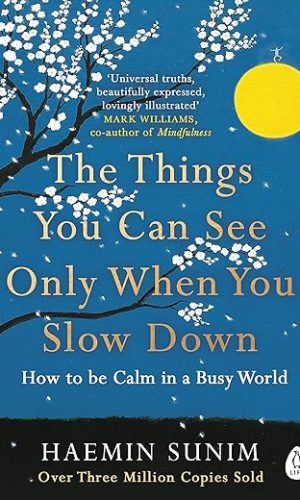Zen Mind, Beginner’s Mind: 50th Anniversary Edition
£12.20£14.20 (-14%)
“In the beginner’s mind there are many possibilities, but in the expert’s there are few.” So begins this most beloved of all American Zen books. Seldom has such a small handful of words provided a teaching as rich as has this famous opening line of Shunryu Suzuki’s classic. In a single stroke, the simple sentence cuts through the pervasive tendency students have of getting so close to Zen as to completely miss what it’s all about. An instant teaching on the first page. And that’s just the beginning.
In the thirty years since its original publication, Zen Mind, Beginner’s Mind has become one of the great modern Zen classics, much beloved, much re-read, and much recommended as the best first book to read on Zen. Suzuki Roshi presents the basics–from the details of posture and breathing in zazen to the perception of nonduality–in a way that is not only remarkably clear, but that also resonates with the joy of insight from the first to the last page. It’s a book to come back to time and time again as an inspiration to practice.
Read more
Additional information
| Publisher | Anniversary edition (20 Jun. 2020), Shambhala Publications Inc |
|---|---|
| Language | English |
| Paperback | 176 pages |
| ISBN-10 | 1611808413 |
| ISBN-13 | 978-1611808414 |
| Dimensions | 13.31 x 1.22 x 20.88 cm |








by Sergiu
Super boring, the author makes the same point throughout the whole book, again and again until you can’t take it anymore. But I certainly learned a lot about doing things. I think I try to be more open since I read it, in my work and also with people and in general. I don’t categorise stuff quite as much and don’t make opinions that would limit my own development.
I think it helped me in my work and in life. I think it helped me to just stop and reconsider a lot of stuff constantly, brake my opinions that limit the way I think rather than create new ones.
Workwise, it made me a bit more creative. I wouldn’t attribute too much to it though, as I’ve been reading other stuff in the meantime. Still, despite being super boring, pretty good book.
by Dennis Farcinsen Leth
This is a brilliant must read instructionbook on Zen meditation.
It tells you why Steve Jobs was a student of Suzuki. It has to do with beauty, simplicity and the present.
Read this book and understand the:
The right practice
The right attitude
The right understanding
I read this book once a year and is a person who regularly meditate. I find peace of mind with this book.
by Andy Pandy
Highly recommended
by Thomas Gauvin
I’m only half way through this book. But already the wisdom I’ve gained and the knowledge for meditation and general life is immense. Even if you have no interest in meditation, this book has a lot of life lessons it can teach you, and can help change or improve your mindset. Really recommend this book, thoroughly enjoying the read, can’t wait to read more. The book also came in a beautifully simple design that I really love, good quality book. No cheap pamphlet here, just a quality book that could last a lifetime.
by swfc
This was the first book on Zen I read, and I found it simply amazing.
Not only is the message of Zen made clear in content, but – crucially – the language and style of the text is so much part of what Suzuki has to offer.
I definitely recommend this book by one of the most influential Zen teachers of the western world. It is a canonical piece of work for Westerners wanting to learn more about Zen philosophy.
The book so inspired me last summer that I included many references to it in my dissertation on the concept of ‘effort’ in geography at university.
by MaxC
Reading this wonderful book is like prospecting for gold. The gems are in there somewhere, and when you find them, they really grab your attention and sparkle like the stars. But please be warned you have to search for them first through some very opaque writing.
My own Buddhist practice is not Zen (it is Nichiren buddhism) but I still found some truly invaluable insights about attitude and meditation that I shall bring to my own practice.
For me, though, the book illustrates the old adage that you more you speak about Zen the further away it gets. If you are new to Buddhism and looking for something for starters, I would respectfully suggest this book may put you off because of its obscurity and I would recommend a more accessible Zen master called Alan Watts.
What Is Zen?
Best of all, read some Haiku (Japaneses poems)
The Sound of Water: Haiku – By Basho, Issa and Other Poets (Shambhala Centaur Editions): Haiku – By Basho, Issa and Other Poets (Shambhala Centaur Editions)
If you are well on your Path, however, Suzuki is a wily old guide. Enjoy.
by Mrs W
all my Buddhism studies can end because I’ve read this book – my personal suffering is over. Thank you Suzuki my master … ????
by lourinha
This book is an excellent introduction to the spirit of Zen. It focuses on simplicity, non-intellectualizing and on not longing for the fruits of the practice. However some of the examples may be cryptic and should be clarified. This may be due to the differences between asian minds and western minds. It is to be credited with me finally taking up formal meditation. However I am combining it with the precepts in
Satipatthana: The Direct Path to Realization
, undertaking an analysis of the various aspects of body, sensation, mind, and dharmas. Sometimes I aim for thoughtlessness, sometimes I aim for analysis. In any case the main aspect may be not to get attached to anything.